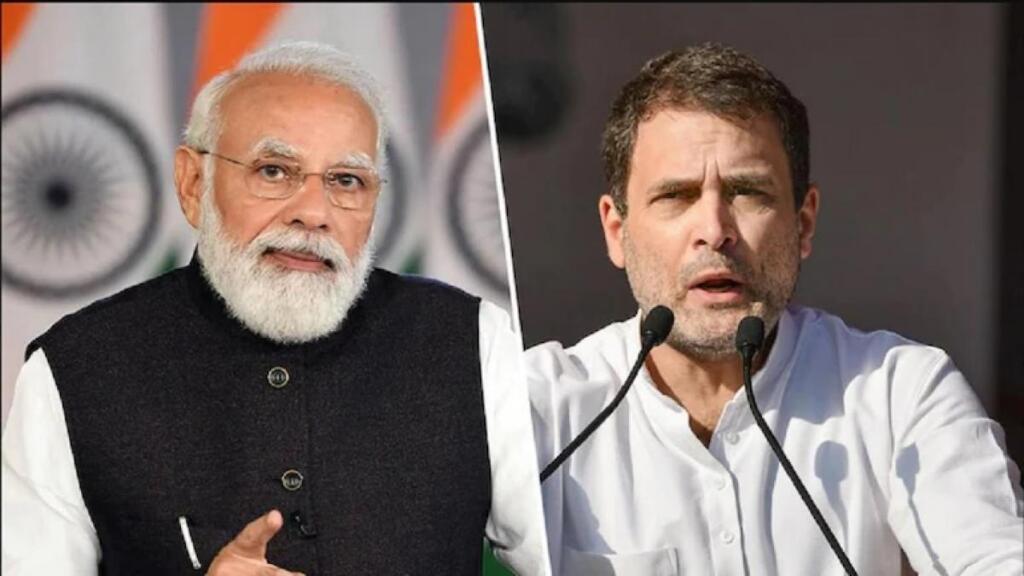With just days remaining for the election of the new Lok Sabha Speaker, the ruling Bharatiya Janata Party-led National Democratic Alliance (NDA) and the opposition’s INDIA bloc are nearing a consensus on this pivotal position in the Lower House of Parliament. The election for the Speaker is scheduled for June 26.
INDIA Bloc’s Strategy
Sources indicate that the INDIA bloc might refrain from nominating a candidate for the Speaker’s position in the 18th Lok Sabha if the opposition receives the allocation of the Deputy Speaker’s post. This consideration forms part of a broader strategy to ensure a balance of power within Parliament.
Historical Context: Speaker Elected Without Contest
In independent India, forcing an election for the Speaker’s post has never occurred, as the presiding officer traditionally emerges through consensus. BJP MPs Sumitra Mahajan and Om Birla won the Speaker’s position uncontested in the 16th Lok Sabha (2014) and 17th Lok Sabha (2019), respectively.
In contrast, the Deputy Speaker’s position has seen varied outcomes. AIADMK leader M Thambi Durai held the Deputy Speaker post in the 16th Lok Sabha, but it remained vacant in the 17th Lok Sabha.
INDIA Bloc’s Demand for Deputy Speaker
The INDIA bloc, strengthened by its increased representation in the Lok Sabha, is now assertively seeking the Deputy Speaker’s post. Traditionally, a member of the opposition has held this role, and the bloc is keen on preserving this convention.
BJP’s History with Deputy Speaker Role
The Congress-led United Progressive Alliance (UPA) governments from 2004 to 2014 offered the Deputy Speaker position to BJP MPs Charanjit Singh Atwal and Kariya Munda. This precedent supports the opposition’s current demand for the Deputy Speaker role.
Schedule and Procedure
Congress MP Kodikunnil Suresh, elected for an eighth term, expects to be appointed as Pro-tem Speaker. The Parliament has reserved the initial two days for the oath-taking of newly elected MPs, followed by the election of the Speaker on June 26.
Consensus on Speaker Nominee
NDA allies appear open to choosing a BJP leader as the Speaker. TDP leaders of Andhra Pradesh Chief Minister Chandrababu Naidu have suggested that NDA partners should jointly decide the candidate. JD(U) leader has also indicated potential support for a BJP-nominated candidate.
Pro-tem Speaker Appointment
Before the Parliament session begins, the President appoints a Pro-tem Speaker to administer the oath to newly elected MPs. By convention, the most senior MP assumes this role. It is expected that Congress MP Kodikunnil Suresh, who has been elected for an eighth term, will be appointed as the Pro-tem Speaker.
Front-Runners
Reports suggest that Om Birla may continue, having won the 2024 Lok Sabha elections as a BJP candidate from Kota, Rajasthan. Other potential candidates include Daggubati Purandeswari, a BJP politician from Andhra Pradesh and daughter of TDP founder NT Rama Rao, and Bhartruhari Mahtab, a seven-term MP who recently joined the BJP from the Biju Janata Dal (BJD).
Appointment
Members of the Lok Sabha choose the Speaker and Deputy Speaker from among themselves through a simple majority vote of those present and voting. Its election does not mandate any special qualifications; the only constitutional requirement is that the candidate must be a member of the House. However, parliamentary conventions and procedures significantly influence the selection. This means that while the constitution sets the basic eligibility, the traditions and established practices of Parliament heavily impact who ultimately assumes the role.
Conclusion
In summary, the selection of the new Lok Sabha Speaker is approaching with both the ruling NDA and the opposition INDIA bloc engaging in strategic negotiations. The outcome will be crucial for maintaining parliamentary balance and ensuring smooth legislative proceedings.
ALSO READ: The increasing number of Rohingya Infiltrators in India: Causes and Consequences
